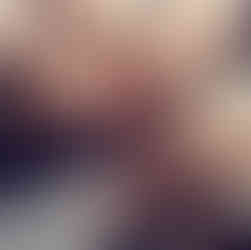Lately, I find myself overwhelmed by the sheer horror and complexity of the Israel/Gaza/ Lebanon++ conflict. There is so much pain, history, and trauma on all sides. Conversations about this topic feel heavy, fraught with layers of emotion and fear, and I’ve found myself lost in the middle of it, unsure how to hold all these truths at once.
As someone with both a both Jewish and Israeli background, I carry the very real weight of my people's history—our trauma, displacement, and survival. But I also cannot turn away from the suffering of Palestinians, who are living under occupation, whose stories are also filled with pain and displacement. The burden of holding both these truths feels too much at times, and I know I’m not alone in this.
The Complexity of Listening
It’s hard to talk about this conflict, especially with people who seem to see things so differently. I know many in the Jewish community who feel that even speaking about their pain leads to judgment and dismissal. And many Palestinians who feel their voices are never fully heard. This is the reality we are in, where speaking honestly feels dangerous, where holding space for more than one truth feels impossible.
And yet, this is exactly what we need...
I wish I had easy answers, but the truth is, I don't. What I do know is that I long for us to support each other in learning how to have these difficult conversations. Conversations that acknowledge pain without turning it into a weapon. Conversations that don’t seek to find “the right” answer, but instead hold the complexity of what is real for both sides. That’s hard work. It requires courage, and it requires us to listen even when we want to shut down.
What We Can Do for Each Other?
In the midst of despair, I do believe there is hope, though it often feels buried beneath the weight of our protective fear and righteousness. We can start small. We can begin by learning how to hold space for each other’s pain without rushing to judgment or defensiveness. We can approach these conversations with humility, recognizing that no one person has the full picture.
We can also do the inner work to recognize our own triggers, our own defensiveness, blind spots and biases, and work through it without placing that emotional labour on others. For those of us directly involved, this might mean confronting our own histories—acknowledging the trauma we carry and live with while also recognizing the trauma we might be perpetuating.
For those on the outside looking in, it could mean recognising when you might be feeding into or being led by oversimplified narratives and noticing when your own language and views may be adding to the cycle of dehumanization, for when we call anyone a monster or a terrorist (words used to describe people on either side) , we forget their humanity. It means holding compassion for everyone touched by this conflict, whether Lebanese, Israeli, Palestinian, Jewish or Arab and recognizing humanity on all sides.
Finding Hope in Connection
Ultimately, what I long for is a space where we can speak our truths without fear, where we can listen without judgment. I know this won’t come easily, and maybe not soon. But I do believe that healing starts with conversations. Pain shared with someone who listens deeply can create a bridge where none seemed possible before.
I keep telling myself that it’s okay to feel lost in this, to not know the answers, to be confused by the complexity. What matters is that I keep showing up for these conversations, even when it’s hard. And in doing so, we might begin to find some hope—not in grand solutions, but in the small, powerful act of truly hearing one another.
Connection Circle: One Year On (October 6th, 7:30-9:30 pm, North London) A vital step toward dialogue across communities is creating space for individuals within each community to speak freely and feel safe enough to share their experiences without fear of judgment. Even within the Jewish community, there are many conflicting perspectives. To help navigate this, I’ve teamed up with Janine Shalev, another Conflict Transformation trainer and coach of Jewish heritage. Together we offer a FREE evening of connection for the Jewish community. We will reflect on the past year’s events and how they have impacted our lives, our families, and those we care for on all sides. No matter your perspective, if you are Jewish, you are welcome. We would love to have you join us on Sunday, October 6th.
Bridging the Divide: Conflict Transformation for Young Jewish Adults (November 11th - December 16th, ONLINE)For those looking to deepen their ability to navigate these conversations within their communities, families, and friendships, Janine and I are offering a focused 6-week Foundations Course in Nonviolent Communication for Jewish adults under 35. This course will support you in having difficult conversations, especially within mixed cultural environments where expressing yourself can feel challenging. If you’d like to join or have any questions, please don’t hesitate to get in touch. We would love to welcome you.
Open Events for All Backgrounds: If you would like to attend or host an open event where people from all identities and backgrounds are welcome to share and be heard together, we will be offering those spaces in the coming months. Do contact us if you have a community you would like us to work with around this topic. We would love to come and support a way forward through connection. You can read about our vision cross community dialogue HERE











